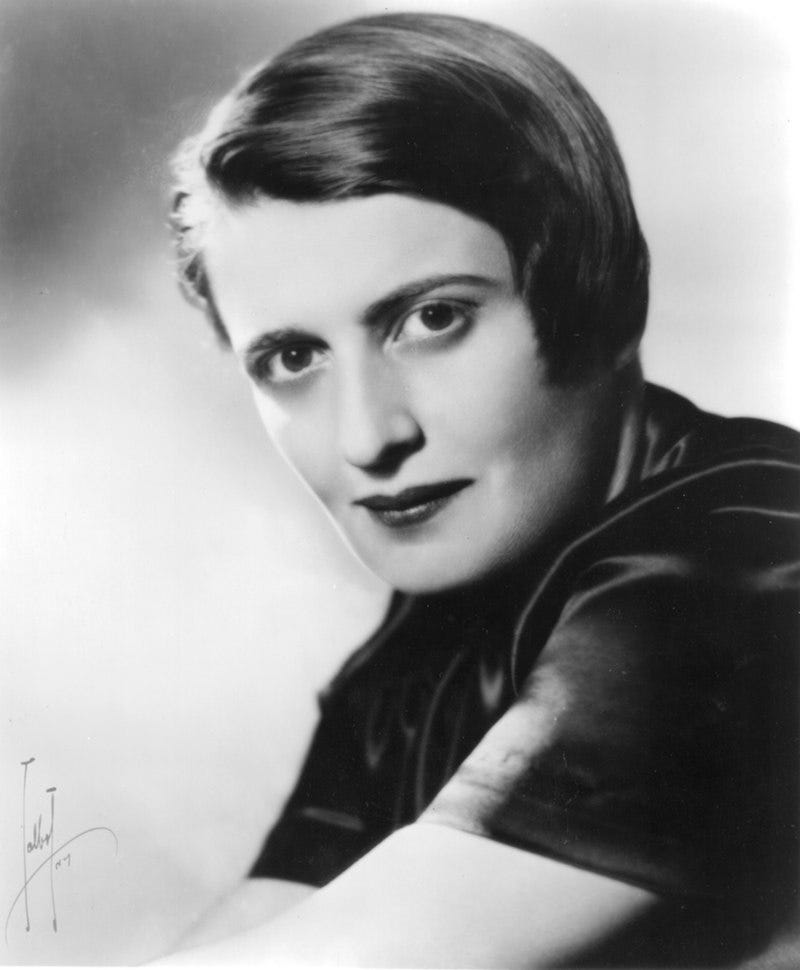Ayn Rand’s Views on Abortion and Questions Americans Must Answer
One of the reasons the abortion debate is so heated is because Americans have starkly different views on where their rights come from.
I had the unique experience of being at an objectivist conference when the Supreme Court’s decision on Dobbs came down a couple of years ago, overturning the landmark Roe v. Wade decision that guaranteed the right to an abortion.
It didn’t take long to realize the room, which held two or three hundred people, was pretty evenly split. During a panel discussion, one speaker seemed to voice approval of the decision, and the audience erupted in applause. Moments later, when a member of the audience expressed shock during the QA that a room full of objectivists would support such a decision, the audience again erupted in applause.
The reaction should have come as no surprise. It was clear the audience was a diverse group. There were secularists, atheists, and agnostics. Conservatives and liberals. Objectivists, capitalists, anarchists, and libertarians.
As the discussions continued—most of which did not involve abortion rights—I couldn’t help but wonder how Ayn Rand herself viewed abortion. So I took out my phone and began to search for answers on what the mother of Objectivism thought about the subject. (Though I’ve long been of fan of Ayn Rand’s work, I am by no means a Rand scholar, and had never explored her views on the matter.)
Ayn Rand’s View of Abortion
It didn’t take me long to find Rand’s views on abortion. A 2011 NPR article written by Frank James provided an excerpt from a 1968 essay in The Objectivist titled “On Living Death.”
In the essay, which also appears in Rand’s book The Voice of Reason, Rand makes it clear she supports abortion rights.
An embryo has no rights. Rights do not pertain to a potential, only to an actual being. A child cannot acquire any rights until it is born. The living take precedence over the not-yet-living (or the unborn).
Abortion is a moral right—which should be left to the sole discretion of the woman involved; morally, nothing other than her wish in the matter is to be considered. Who can conceivably have the right to dictate to her what disposition she is to make of the functions of her own body?
I happen to disagree with Rand on this point, and find two problems with her logic.
First, she makes her case by saying an “embryo” has no rights. But abortions impact more than mere embryos, which are commonly defined as human offspring “during the period from approximately the second to the eighth week after fertilization.”
Second, she says “the living take precedence over the not-yet-living.” But it does not follow that a human fetus is not “living” simply because it has yet to pass through a birth canal. An abundance of medical literature shows that human fetuses are generally viable in the 24th or 25th week of the gestational stage.
Biologists say evidence suggests these developing human beings feel pain as early as 15 weeks after conception.
"Somewhere between 15 and 20 weeks babies will actually resist the instruments of abortion," says Dr. Marty Makary, a British-American surgeon and professor at Johns Hopkins Hospital who was recently tapped by Donald Trump to lead the FDA.
It’s unclear if Rand was aware of these facts when she developed her opinions on abortion, or whether this evidence would change her mind if she did know. But the point of this article is not to convince readers that I’m right about abortion and Rand was wrong.
The point is to get people to begin asking themselves the proper questions.
Abortion: Questions We Must Answer
Keep reading with a 7-day free trial
Subscribe to The Take (by Jon Miltimore) to keep reading this post and get 7 days of free access to the full post archives.



